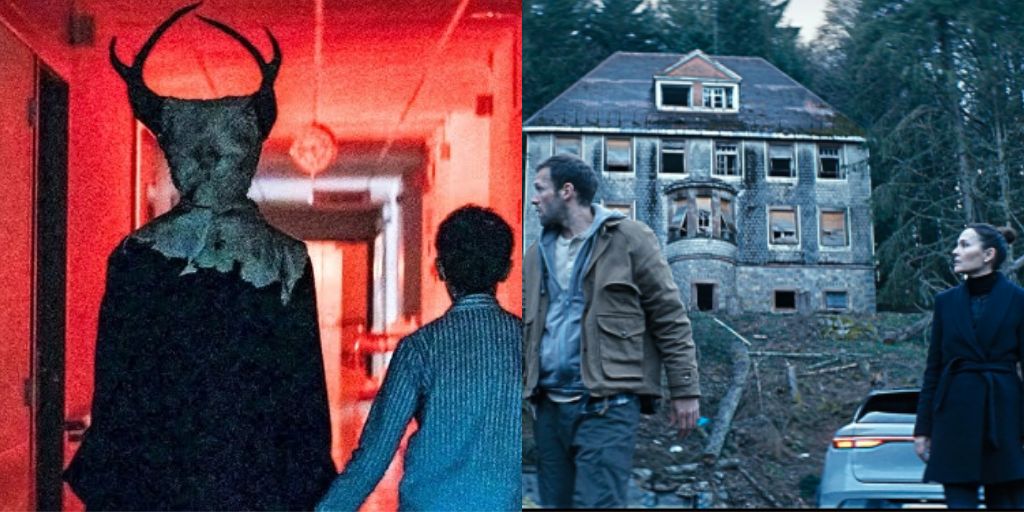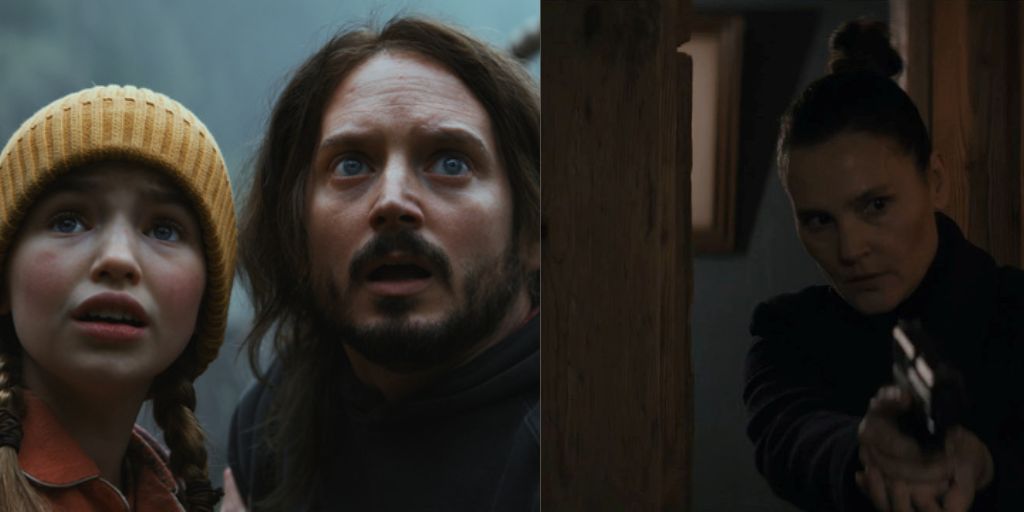Alexandre Bustillo and Julien Maury have been known for their intense horror films for over a decade. Their new movie, The Soul Eater, keeps up their tradition of dark and disturbing content. Although it is less focused on pure horror than their previous works, it mixes eerie folklore with a crime thriller, leaving viewers uneasy and disturbed by the end.
In The Soul Eater, two investigators from outside the area team up in the remote French town of Roquenoir. Commander Elizabeth Guardiano (played by Virginie Ledoyen) and Captain Franck De Rolan (played by Paul Hamy) clash at first, each following their own leads.
As they dig deeper, they find that working together is more effective. The town has an old legend about “The Soul Eater,” a mythical creature that might be harming the local children.
The film is more straightforward compared to Bustillo and Maury’s earlier work. It is somewhat similar to movies like The Snowman (but better) or The Treatment (but worse). The Soul Eater focuses on everyday horrors rather than supernatural gore, showing that Bustillo and Maury can create suspenseful films without relying on their usual graphic violence.
However, the movie still includes shocking and graphic scenes. The investigators find crime scenes with blood everywhere and bodies horribly mutilated. This violence is used to highlight the seriousness of the crimes in Roquenoir and to make viewers worry about the missing children.
The Soul Eater sometimes gets tangled in its own dark imagery and plot twists. The early scenes of “The Soul Eater” can be confusing, and the story occasionally loses its focus.
The movie’s religious themes and the eventual reveal are frightening, but the story can feel a bit disjointed. The film’s technical aspects are well done, but the screenplay by Annelyse Batrel and Ludovic Lefebvre, based on Alexis Laipsker’s novel, can be hard to follow at times.

Despite these issues, The Soul Eater is a solid entry in the horror procedural genre. Bustillo and Maury manage to inject their unique brand of dread into the film, even though they are working with someone else’s script.
Virginie Ledoyen and Paul Hamy deliver strong performances, anchoring a story of gruesome murders in a town plagued by tragedy. The film shows that Bustillo and Maury can succeed outside their usual horror themes, though it is clear that their unique style brings a different kind of intensity to the story.
In horror cinema, directors often grapple with the balance between storytelling and shock value. With The Soul Eater, Alexandre Bustillo and Julien Maury demonstrate that they are more than capable of walking this fine line.
While the film departs from their usual reliance on graphic gore, it retains a lingering sense of dread that permeates every frame. This shift allows the directors to show more nuanced themes, such as the intersection of myth and reality, as well as the psychological toll that such investigations take on those involved.
The Soul Eater stands out not just for its disturbing content, but also for its exploration of the human condition. The film goes into the complexities of working in a small, tight-knit community where everyone knows each other, yet dark secrets fester beneath the surface. The town of Roquenoir becomes a character in its own right, with its eerie atmosphere adding to the film’s overall tension.
The performances by Virginie Ledoyen and Paul Hamy are central to the film’s success. They portray their characters with a depth that makes their struggles palpable, allowing the audience to become fully immersed in the story.
Despite the film’s occasional missteps in pacing and clarity, it offers a compelling narrative that leaves viewers reflecting on the thin line between myth and reality, as well as the often-unseen horrors lurking in the shadows of everyday life. The Soul Eater is a testament to Bustillo and Maury’s ability to evolve within the genre while maintaining their signature unsettling style.





